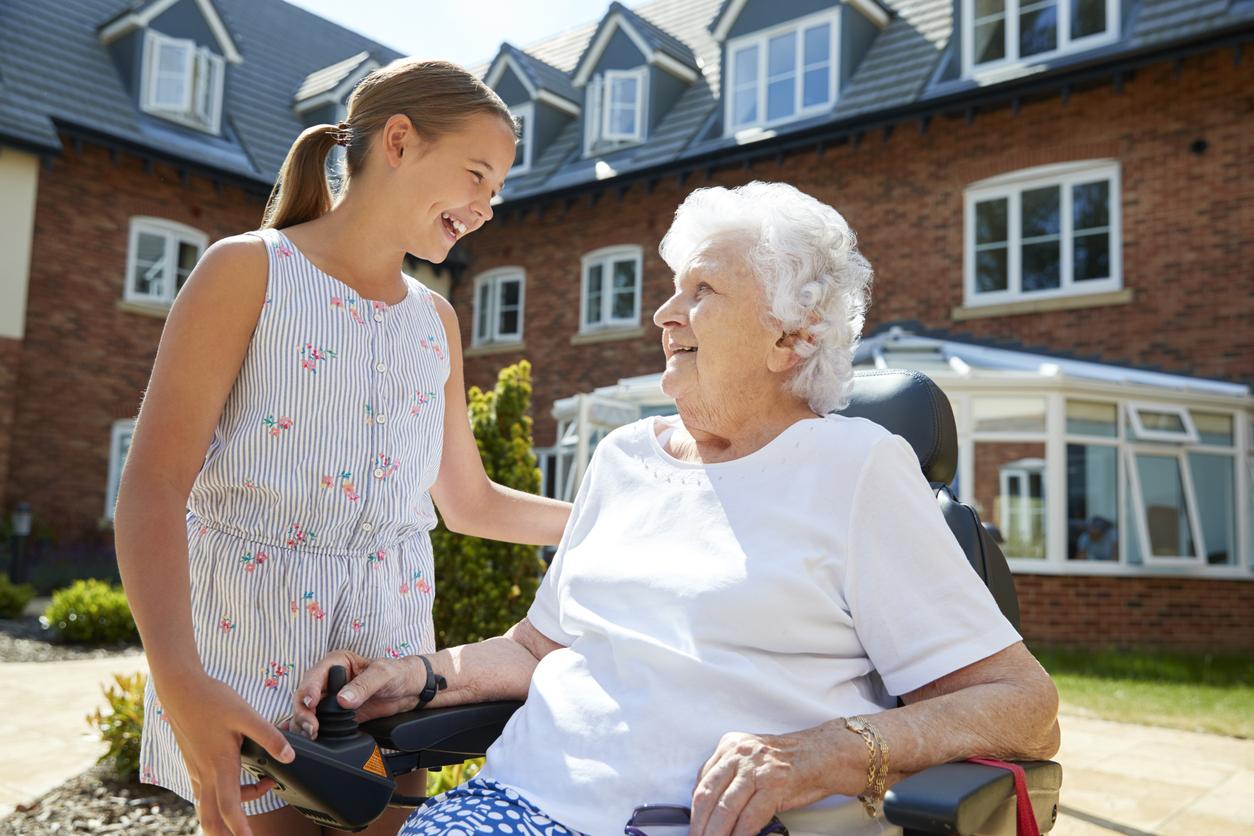Talking and meeting children helps older people in nursing homes better manage their mental health issues, such as depression and anxiety.

- In South Africa, a retirement home offers a program, which allows residents to interact and play regularly with children who attend a preschool on site.
- In this retirement home, four women were at risk of suffering from anxiety, depression or both.
- Intergenerational interactions fostered a sense of belonging and purpose, fond memories of their own childhood, and positive effects on mood and emotions.
“The mental health of an increasingly aging population is an important part of healthcare,” said researchers from the University of Stellenbosch in South Africa. Several data have suggested that programs allowing seniors to interact regularly with children can improve their mental health. However, most research has been conducted outside nursing homes. This is why South African scientists decided to carry out a study to better understand the potential benefits of intergenerational interactions.
Depression, anxiety: 4 out of 10 women in retirement homes likely to suffer from it
In their work, the team focused on a retirement home that offers a program, called “Eden Alternative”, which aims to minimize the factors contributing to mental disorders. As part of this program, residents can interact regularly with children who attend a kindergarten on site during activities, such as making puzzles, reading or singing.
For the purposes of the study, the authors invited older people to complete a questionnaire assessing their levels of anxiety and depression and asking them to describe their experiences with children. According to the data, ten women participated in this research, four of whom were at risk of suffering from anxiety, depression or both. All of the participants had interactions with the preschoolers, but some had more than others.
Intergenerational interactions ‘foster a sense of belonging and purpose’
According to the results, published in the journal Plos One, on the whole, intergenerational interactions were experienced positively. They “promote a sense of belonging and purpose, evoke memories and positively influence the well-being of older people”, say the researchers in a statement. Based on this study, they conclude that these programs help residents better manage depression and anxiety. “Recommendations are made for the successful implementation of such programs. »
















